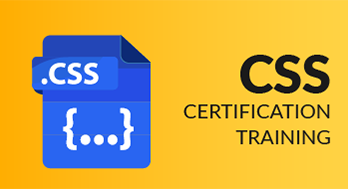In the dynamic world of project management, methodologies are continually evolving to keep pace with the ever-changing demands of the industry. Agile methodologies have become a go-to approach for many organizations, and Scrum is one of the most popular Agile frameworks. To master Scrum and become an effective Scrum Master, professionals often seek certification. The Scrum Master Professional Certificate SMPC is one such certification that holds significance in the Agile community. In this comprehensive guide, we will explore the SMPC, what it entails, and how it can benefit your career and organization.
Understanding Scrum
Before delving into the SMPC, it’s essential to have a solid understanding of Scrum itself. Scrum is an Agile framework that emphasizes collaboration, adaptability, and iterative development. It is used for managing complex projects and fostering teamwork. Scrum is rooted in the Agile principles outlined in the Agile Manifesto and is comprised of roles, events, and artifacts.
Roles in Scrum
- Scrum Master
- Product Owner
- Development Team
Scrum Events
- Sprint
- Daily Scrum
- Sprint Review
- Sprint Retrospective
Scrum Artifacts
- Product Backlog
- Sprint Backlog
- Increment
The Role of a Scrum Master
A Scrum Master plays a pivotal role in facilitating the Scrum process. They are responsible for ensuring the team follows Scrum practices and principles, removing impediments, and promoting self-organization. To excel in this role, a Scrum Master should possess certain skills and characteristics.
Skills of a Scrum Master
- Servant leadership
- Facilitation
- Coaching and mentoring
- Conflict resolution
- Empathy
The Importance of Certification
- Demonstrates commitment to Scrum principles
- Validates knowledge and skills
- Enhances job prospects
- Boosts earning potential
Introduction to the Scrum Master Professional Certificate (SMPC)
The Scrum Master Professional Certificate (SMPC) is a globally recognized certification that validates an individual’s knowledge and proficiency in Scrum. It is designed to test the candidates’ understanding of Scrum principles, their ability to apply them in real-world scenarios, and their capacity to serve as effective Scrum Masters.
Who Is SMPC Designed For?
- Aspiring Scrum Masters
- Current Scrum Masters seeking validation
- Anyone involved in Agile and Scrum projects
The Certification Process
- Training: Attend a recognized SMPC training course
- Exam: Pass the SMPC exam
- Certification: Receive the Scrum Master Professional Certificate
SMPC Training
To be eligible for the SMPC certification, candidates must complete a training course from a recognized training provider. These courses are designed to provide comprehensive knowledge of Scrum principles, practices, and real-world application.
Topics Covered in SMPC Training
- Scrum framework and principles
- Roles and responsibilities of a Scrum Master
- Scrum events and artifacts
- Scrum in practice: real-world scenarios
- Case studies and group discussions
Duration and Format
- Typical duration: 2-3 days
- Options for in-person and online training
- Interactive and hands-on learning
SMPC Exam
The SMPC exam is the pivotal step towards earning your certification. It tests your knowledge and understanding of Scrum principles and your ability to apply them in practical situations.
Exam Format
- Multiple-choice questions
- Scenario-based questions
- Time-limited (usually 1-2 hours)
Passing Score
- The passing score varies but is usually around 75%
- Scores are provided immediately upon completion
Preparation Tips
- Review your course materials
- Practice with sample questions
- Consider taking practice exams
- Maintain a calm and focused mindset
Benefits of SMPC
Earning the Scrum Master Professional Certificate (SMPC) offers a range of benefits to both individuals and organizations.
Benefits for Individuals
- Enhanced career prospects
- Increased earning potential
- Recognition in the industry
- Opportunity to work on challenging projects
Benefits for Organizations
- Improved project success rates
- Enhanced team collaboration
- Efficient and adaptive project management
- A culture of continuous improvement
SMPC vs. Other Scrum Certifications
Several Scrum certifications are available, and each has its own focus and target audience. It’s essential to understand the differences between SMPC and other certifications to make an informed decision.
SMPC vs. Certified ScrumMaster (CSM)
- CSM focuses on Scrum basics
- SMPC covers more advanced and practical topics
- CSM may be a good starting point, while SMPC is ideal for career advancement
SMPC vs. Professional Scrum Master (PSM)
- PSM and SMPC both cover advanced Scrum topics
- PSM may be more challenging due to the lack of mandatory training
- SMPC may be more accessible for those who prefer a structured course
Scrum Master Professional Certificate (SMPC) in Practice
Now that you’ve earned your SMPC, how can you apply it in real-world scenarios? This chapter delves into the practical application of the SMPC certification.
Leading Scrum Teams
- Facilitating Scrum events
- Removing impediments
- Coaching the team
- Fostering self-organization
Continuous Improvement
- Conducting retrospectives
- Adapting to changing project requirements
- Implementing feedback
Maintaining Your SMPC
The Scrum Master Professional Certificate is not a one-time achievement. To maintain your certification’s validity, you may need to engage in ongoing professional development.
Continuing Education
- Attend Scrum and Agile conferences
- Participate in webinars and workshops
- Stay updated with the latest industry trends
Renewal Requirements
- Some certifications require renewal every few years
- Renewal may involve taking an advanced exam or accumulating continuing education units (CEUs)
Also Read: Certified Special Events Professional Certification Online
Conclusion
In the world of Agile project management, the Scrum framework is a leading choice for organizations looking to enhance productivity, collaboration, and adaptability. Earning the Scrum Master Professional Certificate (SMPC) demonstrates your commitment to Scrum principles and your ability to excel in the role of a Scrum Master. With the knowledge and skills gained through the SMPC certification, you can contribute to the success of your projects and organization while advancing your career in the dynamic field of Agile project management.




